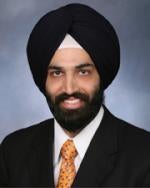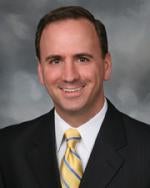In May 2019, the US Department of Health and Human Services (HHS) Office for Civil Rights (OCR) issued the final rule “Protecting Statutory Conscience Rights in Health Care,” which reflects efforts by OCR’s new Conscience and Religious Freedom Division (CRFD). CRFD launched in January 2018 for the stated purpose of pursuing federal enforcement of existing laws concerning religious freedom and “conscience rights.” Its efforts are intended (according to OCR) to provide protections to healthcare providers who would refuse to participate in certain healthcare services, typically those related to reproductive health (e.g., abortion and sterilization), based on religious or similar objections.[1] HHS’s 2018 Annual Report shorthanded CRFD’s purpose as “[c]ontinuing to protect conscience and life in healthcare settings.”[2]
Historically, OCR’s mission had been twofold: (1) focused on protecting more traditional civil rights in the healthcare context, including those related to age, disability, race and gender, under Title VII, the Americans with Disabilities Act, and other federal statutes, and (2) supporting health information privacy by enforcing and otherwise administering the Health Insurance Portability and Accountability Act (HIPAA). Since 2008, OCR’s Civil Rights Division has also had varying degrees of involvement in HHS’s limited enforcement of certain conscience and religious freedom provisions related to federal healthcare spending and programs, coordinating the handling and resolution of the extremely small number of complaints HHS received (an average of just one or two filed each year from 2008 until November 2016).[3] However, the new CRFD seeks to expand the OCR mission to include the claimed right to abstain from any involvement in the provision of certain healthcare services, principally abortion, for a much larger group of healthcare workers, and recent requests for congressional funding have made this new direction clear.
The number of complaints concerning conscience issues has jumped since November 2016, rising from a baseline of 10 complaints filed in the previous eight years, to 34 complaints filed between November 2016 and January 2018, to 343 received in FY2018.[4] We have seen some evidence that this is due, at least in part, to freedom of religion/conscience and other religious legal advocacy organizations facilitating individual healthcare workers raising such complaints to a newly friendly OCR.
This new partnership is reflected by the current director of OCR, Roger Severino, whom President Trump appointed to lead the agency in March 2017. Before joining OCR, Director Severino was the director of the DeVos Center for Religion and Civil Society at The Heritage Foundation, and previously served as the chief operations officer and legal counsel for the Becket Fund for Religious Liberty. CRFD and other leadership posts at OCR have similarly been staffed primarily by individuals newly joining OCR (often as contractors, rather than permanent civil service hires) from faith-based (predominantly Christian) advocacy organizational backgrounds. Many came to the work of OCR with strong political views and backgrounds in advocating against abortion rights, mandated family planning coverage by health plans, and similar issues related to healthcare provision and health insurance coverage.
While there has been a jump in the number of conscience and religious freedom complaints reported since Director Severino took over and CRFD was launched, such complaints continue to comprise only a tiny fraction of the total complaints received by OCR across all of its subject areas, which HHS has estimated at 8,433 complaints annually for the CRFD and Civil Rights Divisions combined (more than 90% of which come from the Civil Rights Division), and 25,299 annually for the Health Information Privacy Division. [5] Despite this disproportionately low volume of conscience complaints, HHS has greatly increased its budget requests for the CRFD, requesting an additional $1.071 million to hire six new full-time employees, while cutting $7.1 million from the budget of the Operations and Resource Division, which provides primary enforcement for civil and health information privacy rights. [6]
In accordance with this focus, in May 2019, HHS issued the new final rule “Protecting Statutory Conscience Rights,” pursuant to which it purports to enforce the conscience rights of healthcare sector workers under the provisions of approximately 30 federal statutes. The rule asserts that healthcare workers—not just care providers, but also schedulers, other clerical staff, custodians, etc.—have a basically unqualified right to refuse to participate in healthcare services to which they have individual religious or moral objections, regardless of patient safety or other concerns.[7] HHS filed a notice of this proposed rulemaking in January 2018, after which it received more than 242,000 comments.[8] These comments included serious concerns expressed by the American Medical Association, the American Hospital Association, numerous other medical professional societies, and several state attorneys general that the proposed rule would reduce access to reproductive and other healthcare services by prioritizing provider opt-out rights over patient access rights. [9]
The final rule significantly expands OCR’s enforcement authority by adding 23 statutes to the three covered by the rule it replaces. As noted, the new rule allows all healthcare employees who object to a particular healthcare service on a religious or conscience basis to refuse to participate in the provision of that service in any way, including abortion, sterilization, and assisted suicide. [10] The rule provides workers with the absolute right of refusal, extending protections far beyond Title VII’s requirement that employers provide reasonable accommodations that do not impose undue hardship on the employer.[11] Under the new rule, an accommodation is only deemed reasonable if it is voluntarily accepted as such by the employee who has opted out of participation, regardless of the potential hardship any such accommodation might impose on institutions providing healthcare services or on patients who need such services.[12]
The rule also provides several new or expanded definitions that could have significant operational impacts on providers if the rule ultimately takes effect. These include a new definition for “discriminate” that would prohibit an employer from inquiring of a prospective job candidate whether the candidate holds any religious or conscience-based objections to performing required job functions, as well as a definition of “assist in the performance” that would include to
take an action that has a specific, reasonable, and articulable connection to furthering a procedure or a part of a health service program or research activity undertaken by or with another person or entity. This may include counseling, referral, training, or otherwise making arrangements for the procedure or a part of a health service program or research activity, depending on whether aid is provided by such actions.[13]
As such, the new rule would extend protections far beyond direct care providers to those serving in ancillary support roles such as clerical, janitorial, transportation, and sterile processing.
To illustrate, should the rule go into effect, a small local hospital would be forced to hire for an open surgical scheduler position without discriminating or inquiring about whether any given candidate would have a religious or conscience-based objection to scheduling abortion, sterilization, or gender reassign-ment procedures. Once a scheduler was hired, that hospital would also be required by the rule to accommodate the scheduler’s absolute right to opt out of scheduling any such procedures, leading the hospital to either stop providing those procedures altogether or to hire enough redundant coverage for that position to find at least one other person who volunteers to schedule such procedures.
Penalties for a failure to comply with the rule’s strict and extensive provisions include, at the sole discretion of OCR, the denial, withholding, or termination of federal financial assistance or healthcare funds from the provider, of either current or potential new grants—ostensibly including Medicare, Medicaid and other government insurance programs.[14] Furthermore, because the rule newly requires that recipients of federal funds affirmatively certify their compliance with the rule’s provisions and with all applicable federal conscience and anti-discrimination laws,[15] the rule may provide an opening for those seeking additional opportunities to exploit the use of the False Claims Act.[16]
On the same day that the final rule was issued, 23 states and municipalities in the Southern District of New York filed a lawsuit seeking to permanently enjoin and vacate the rule in its entirety.[17] The City and County of San Francisco and the Mayor and City Council of Baltimore also filed similar suits.[18] The final rule’s effective date has been postponed by stipulated court order until November 22, 2019, to allow the federal courts in New York and California to adjudicate the various legal challenges before them as to the rule’s legality.
All entities that directly or indirectly receive funding streams administered by HHS—including Medicare and Medicaid reimbursement—should keep a close eye on how the litigation progresses. To the extent it is not barred this fall by federal courts, the enforcement of this new rule clearly is a priority for the administration, Secretary of HHS Alex Azar, and Director Severino. Investigations already are underway under the auspices of the conscience statutes themselves while the final rule’s fate is being litigated.
PRACTICE NOTE: Unless a federal court blocks or further delays it, the “Protecting Statutory Conscience Rights in Health Care” final rule will take effect on November 22, 2019, and immediately will require all entities that receive federal funds flowing through HHS to afford unprecedented opt-out rights and protections to all staff members with articulable connections to the provision of medical care with which they morally disagree. All such entities should keep a close eye on the pending litigation and prepare contingency plans to comply with the extensive new requirements or to defend existing practices in the face of new regulatory scrutiny.
[1] See Press Release, OCR, HHS Announces New Conscience and Religious Freedom Division (Jan. 18, 2018) https://www.hhs.gov/about/news/2018/01/18/hhs-ocr-announces-new-conscience-and-religious-freedom-division.html.
[2] HHS, 2018 Annual Report, 6 (noting elsewhere, at page 33, HHS’s new policy that life begins “at conception”).
[3] Protecting Statutory Conscience Rights in Health Care, 84 Fed. Reg. 23,179, 23,245 (May 21, 2019) (to be codified at 45 C.F.R. pt. 88).
[4] Protecting Statutory Conscince Rights in Health Care, 83 Fed. Reg. 3,880, 3,886 (proposed Jan. 26, 2018) (to be codified at 45 C.F.R. pt. 88); Protecting Statutory Conscience Rights in Health Care, 84 Fed. Reg. at 23,245.
[5] See, HHS Agency Information Collection Request, 84 Fed. Reg. 9,082 (Mar. 18, 2019).; see also HHS Fiscal Year 2020 Justification of Estimates for Appropriations Committees, OCR Fiscal Year 2020 Congressional Justification, 11 (https://www.hhs.gov/sites/default/files/fy-2020-cj-compilation.pdf) (CRFD retained 784 complaints during fiscal year 2018).
[6] HHS Fiscal Year 2020 Justification of Estimates for Appropriations Committees, OCR Fiscal Year 2020 Congressional Justification, 7 (https://www.hhs.gov/sites/default/files/fy-2020-cj-compilation.pdf).
[7] Protecting Statutory Conscience Rights in Health Care, 84 Fed. Reg. at 23,246.
[8] Id. at 23,180.
[9] See Letter from James L. Madara, MD, Exec. Vice President, CEO, Am. Med. Ass’n, to Alex M. Azar, Sec’y, HHS (Mar. 27, 2018) (https://searchlf.ama-assn.org/undefined/documentDownload?uri=%2Funstructured%2Fbinary%2Fletter%2FLETTERS%2F2018-3-27-Letter-to-Azar-re-Response-to-Proposed-Rule.pdf); Letter from Thomas P. Nickels, Exec. Vice President, Am. Hosp. Ass’n, to Roger Severino, Dir., OCR (Mar. 26, 2018) (https://www.aha.org/system/files/2018-03/180326-let-protecting-statutory-conscience-rights-in-health-care.pdf); Letter from Att’ys Gen. to HHS (Mar. 27, 2018) (https://ag.ny.gov/sites/default/files/ny_ag_et_al._comment_letter_conscience_rights.pdf).
[10] Protecting Statutory Conscience Rights in Health Care, 84 Fed. Reg. at 23,264-66.
[11] Compare id. at 23,190-91 (stating that under the provisions of this rule, HHS will not “incorporate[e] the additional concept of an ‘undue hardship’ exception for reasonable accommodations under Title VII”), with 42 U.S.C. § 2000e(j) (Title VII allows that an employer may demonstrate, as a defense, that it is “unable to reasonably accommodate to an employee’s or prospective employee’s religious observance or practice without undue hardship.”).
[12] Protecting Statutory Conscience Rights in Health Care, 84 Fed. Reg. at 23,190-91.
[13] Protecting Statutory Conscience Rights in Health Care, 84 Fed. Reg. 23,263-64.
[14] Id. at 23,272.
[15] See id. at 23,269-70.
[16] But see Universal Health Servs., Inc. v. United States, 136 S. Ct. 1989, 2002, 195 L. Ed. 2d 348 (2016) (“a misrepresentation about compliance with a statutory, regulatory, or contractual requirement must be material to the Government’s payment decision in order to be actionable under the False Claims Act”).
[17] State of New York, et al. v . U.S. Dep’t of Health and Human Servs., et al., No. 19-cv-4676-PAE (S.D.N.Y.) (and consolidated cases)
[18] City and County of San Francisco v. Azar, et al., No. C 19-02405 WHA (N.D. Cal.) (and consolidated cases)









 />i
/>i


